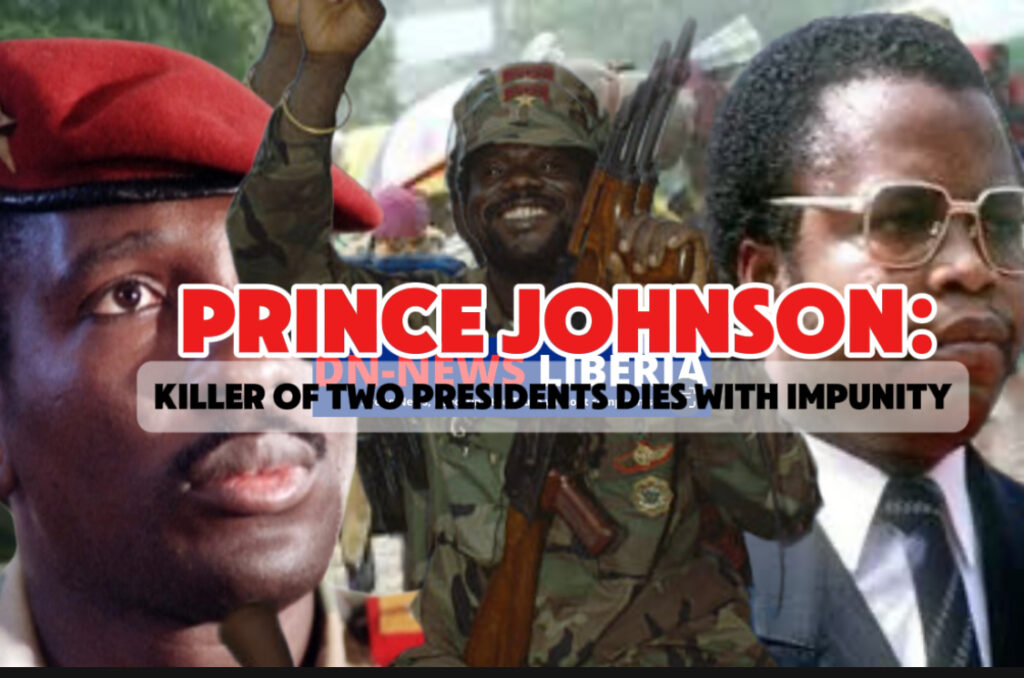As the Liberian government continues to delay the establishment of a War and Economic Crimes Court, some of the most notorious perpetrators of the country’s brutal civil wars are dying without facing justice. Liberia’s dark past, marked by two devastating civil wars from 1989 to 1997 and 1999 to October 2003, left a scar that continues to haunt the nation.
According to the 2009 Truth and Reconciliation Commission (TRC) report, these wars claimed over 250,000 lives, with women and children bearing the brunt of the atrocities. Nearly one million Liberians were displaced, and even by 2005, at the start of Liberia’s first post-war democratic government, half of them remained unrepatriated.
Yet, 21 years after the war’s end, the cries for justice persist. Victims, civil rights groups, and even remorseful warlords have joined the call for a special tribunal to prosecute those responsible for the atrocities. Unfortunately, these demands languished under former Presidents Ellen Johnson Sirleaf and George Weah. While Sirleaf oversaw the establishment of the TRC in 2009, neither leader initiated the creation of the War and Economic Crimes Court.
The recent push by President Joseph Boakai’s government to establish this court offers a glimmer of hope, but the pace remains excruciatingly slow. Justice delayed is justice denied, and for too many Liberians, justice seems perpetually out of reach.
What Did the TRC Recommend?
The TRC, established in 2005, was tasked with investigating gross human rights violations and systematic abuses during Liberia’s conflicts. It identified individuals and groups responsible for these crimes and made comprehensive recommendations for justice and reconciliation.
Among its key recommendations was the prosecution of eight warring factions and 98 individuals for gross human rights violations and war crimes. Notorious perpetrators included Charles Taylor (NPFL), Prince Y. Johnson (INPFL), Alhaji G.V. Kromah (ULIMO-K), George Boley (LPC), and others.
Dying With Impunity
Tragically, several of these individuals, including Alhaji G.V. Kromah and Francois Massaquoi, have died without facing justice. Shockingly, On November 28, 2024, Prince Y. Johnson, leader of the Independent National Patriotic Front of Liberia (INPFL) and one of the TRC’s most prominent targets for prosecution, passed away with impunity.
The TRC documented that Johnson’s faction was responsible for the second-highest number of atrocities during the war, and he personally accounted for the highest number of individual atrocities.
Prince Johnson’s Infamous Legacy
First President Prince Johnson killed:
The late Liberian warlord, Prince Johnson, admitted on 28 August 2008 to the Liberian Truth and Reconciliation Commission that he was involved in the killing of Thomas Sankara who served as President of Burkina Faso or Republic of Upper Volta from 4th August 1983 – 15 October 1987.
Blaise Compaoré a closet friend to Sankara had contacted Johnson whom he asked for help to topple the Burkinabè president Thomas Sankara. According to a former aide of Compaoré, the Ivorian president then, Houphouët Boigny, was aware of the plan of Compaoré. On October 15, 1987, Burkinabè soldiers under the command of Compaoré with the support of a small group of Liberian exiled, headed by Prince Johnson, killed Sankara. During the TRC’s hearing Prince Yormie Johnson , explained at length about their involvement in the assassination of Thomas Sankara.
In his testimony, Johnson indicated that Sankara had refused to help them because he never wanted Burkina Faso to be used to train and finance warring faction to invade Liberia.
It was in this context that they agreed to kill Sankara at the request of Blaise Compaoré. There was an understanding that they would receive assistance following Sankara’s assassination and Compaoré’s ascension. Momo Jiba and Cyril Allen claimed that it was Blaise Compaoré himself who had ‘fired the first shot’ that killed Sankara around 4.30 pm. Diendéré,one of Sankara’s bodyguard on the other hand, said that Blaise Compaoré arrived at the house much later, around 6.00 p.m. to kill Sankara. Sankara was killed in an agreement that Burkina Faso and Libya would help Charles Taylor, Prince Johnson and their men to seize power in Liberia.
The second President Killed by Prince Johnson:
In 1990, the then-38-year-old Johnson led a rebel faction that invaded Monrovia, captured former Liberian President Samuel Doe and tortured him in front of a rolling camera.
Johnson is seen in the video kicking back in a chair, his feet up on a table and a bottle of beer in one hand. He mocks the former ruler as his men strip the president to his underwear then cut off his ears, as blood streams down his temple. The president later died, and according to one witness’ testimony in front of the nation’s truth and reconciliation commission, Johnson later showed off Doe’s head on a platter.
Aside from the two mentioned, multiple witness accounts point to Prince Johnson’s brutal acts against hundreds of peaceful civilians and members of his own INPFL.
The death of Prince Johnson without facing prosecution is a grim reminder of Liberia’s failure to address its bloody history. Justice is not merely about retribution; it is about healing the wounds of a nation and ensuring that such atrocities are never repeated.
The government of Liberia, under President Boakai, must act decisively to establish the War and Economic Crimes Court. This is not just a legal obligation but a moral imperative to honor the memory of the victims and provide closure for their families.
We call on Liberia’s international partners, including the United Nations, ECOWAS, and the African Union, to support and expedite this process. Justice for the victims of Liberia’s civil wars cannot wait another decade. The establishment of the court will send a powerful message that impunity has no place in Liberia’s future.
Let us not allow more perpetrators to die in peace while their victims continue to live in pain and regret. Justice delayed is justice denied, and Liberia must not deny itself the opportunity to heal and rebuild on the foundation of accountability.

